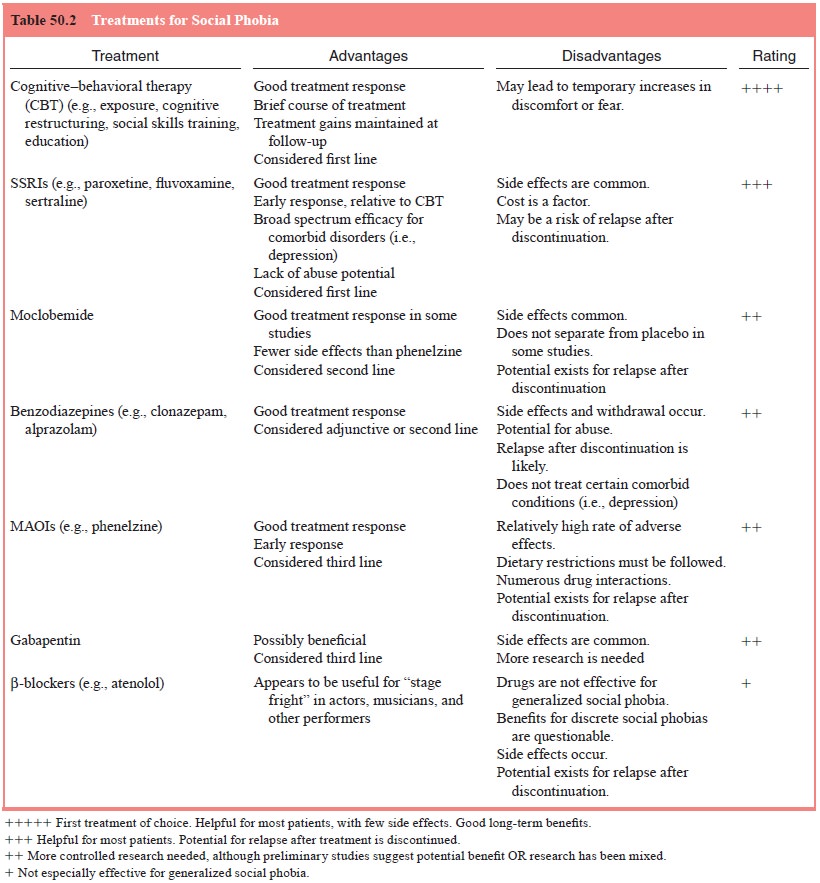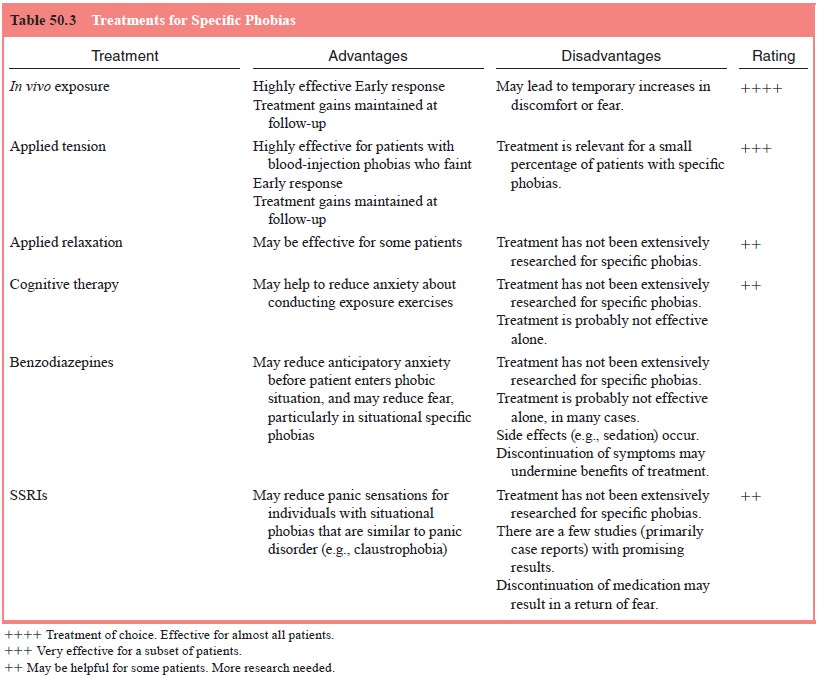Chapter: Essentials of Psychiatry: Anxiety Disorders: Social and Specific Phobias
Social and Specific Phobias: Treatment
Treatment
Goals and Nature of Treatment
The main goal of treatment is to decrease fear and phobic avoid-ance to
a level that no longer causes significant distress or func-tional impairment.
In some cases, treatment includes strategies for improving specific skill
deficits as well. For example, indi-viduals with social phobia may lack
adequate social skills and can sometimes benefit from social skills training.
Likewise, some individuals with specific phobias of driving may have poor
driv-ing skills if their fear prevented them from learning how to drive
properly. Typically, effective treatment for social phobia lasts several
months, although treatment of discrete social phobias (e.g., public speaking)
may take less time. Specific phobias can usually be treated relatively quickly.
In fact, for certain phobias, the vast majority of individuals are able to
achieve clinically sig-nificant, long-lasting improvement in as little as one
session of behavioral treatment.
Effective treatments fall into one of two main categories:
pharmacological treatment and CBT. Pharmacological treatments have been used
effectively for treating social phobia, although it is generally accepted that
they are of limited utility for treating specific phobias. In contrast, CBT has
been used with success for the treatment of specific and social phobias.
Despite the existence of effective treatments, fewer than half of those who
seek treat-ment in an anxiety disorders specialty clinic have previously
re-ceived evidence-based treatments for their social anxiety (Rowa et al., 2000). Tables 50.2 and 50.3
summarize various treatments for
social and specific phobias.


Related Topics